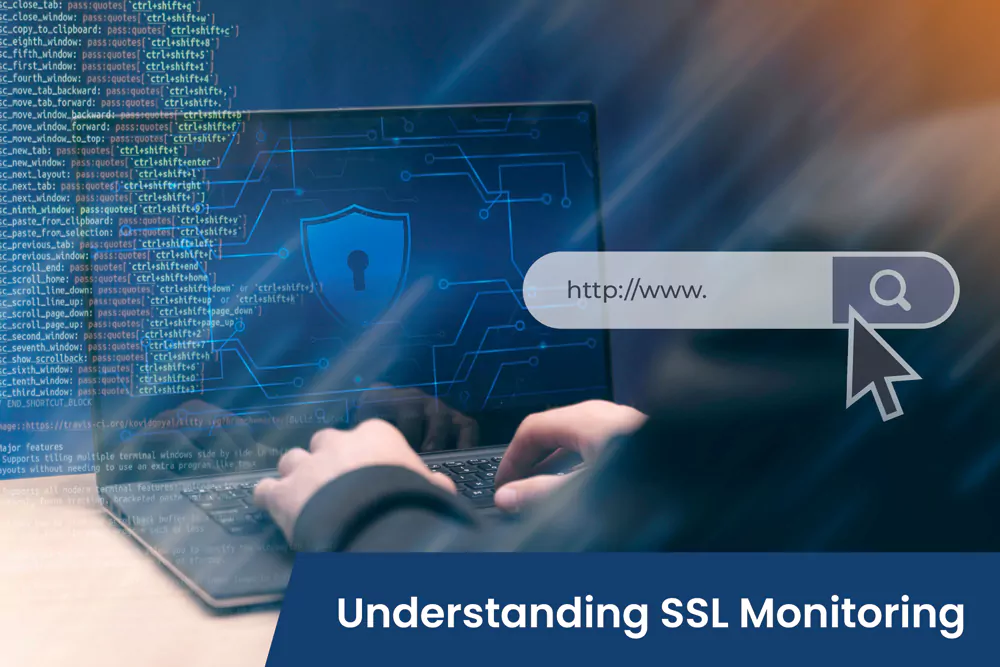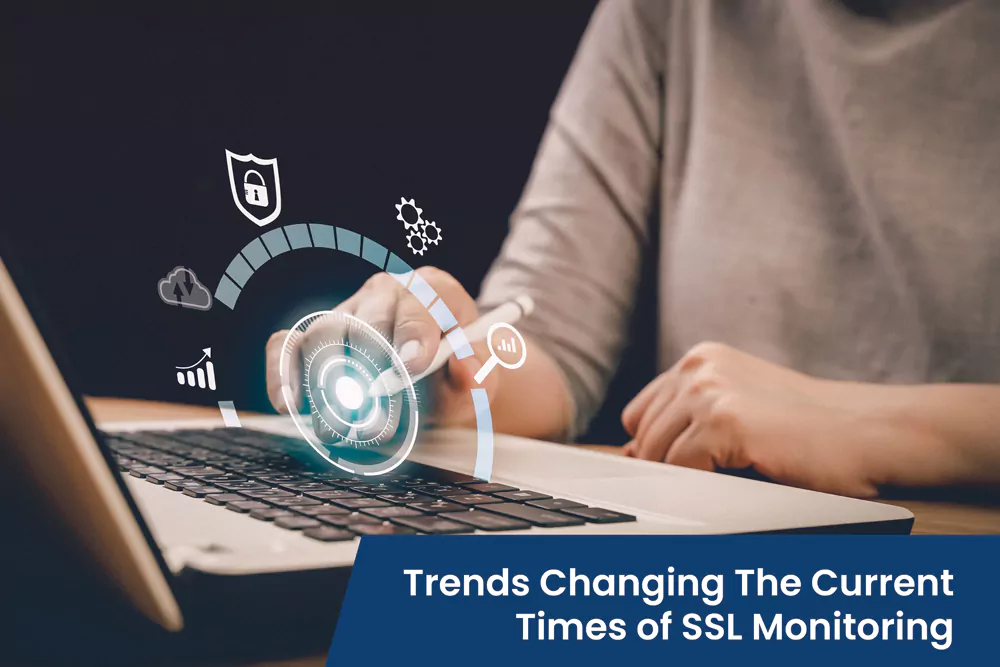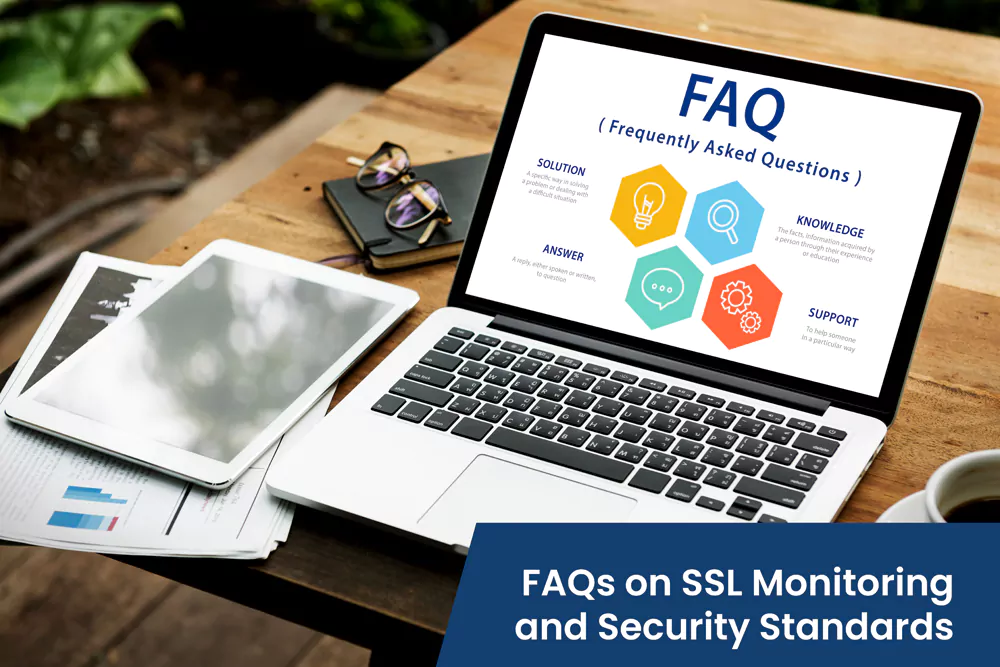Understanding SSL Monitoring

What is SSL Monitoring and Why is it Crucial?
SSL monitoring involves actively managing and tracking SSL certificates to ensure secure connections between servers and clients. These certificates act as digital passports, confirming a website’s authenticity. Without proper monitoring, websites risk data breaches, expired certificates, and lost user trust.
SSL monitoring has never been more important. As cybersecurity threats evolve, having a robust SSL management strategy is vital to keeping data safe and preventing unauthorized access. Monitoring ensures all certificates are valid, up to date, and correctly configured.
The New Generation of Website Security
The digital landscape is changing rapidly, with threats becoming more sophisticated every day. As businesses move into cloud environments and decentralized networks, ensuring seamless and secure data transmission is of paramount importance. SSL/TLS certificates, which are necessary for encrypting data, are more important than ever. While acquiring an SSL certificate has become a necessity, simply having one is no longer enough; continuous SSL monitoring has become the need of the hour to combat breaches and maintain trust.
Why SSL Monitoring is Critical in 2025
Today, in 2025, users of websites require adequate encryption for all domains to interact with. A report given by Statista in the year 2023 highlights that 82% of global internet traffic uses encrypted HTTPS
SSL monitoring allows detecting:
- Expired certificates ahead
- Misconfigurations
- Emergence of alerts on vulnerabilities as well as non-compliance with the changing security benchmark
Trends Changing The Current Times of SSL Monitoring

1.Automated Threat Detection
AI in cybersecurity is getting used to detect vulnerabilities within even few seconds, which makes these response times shorter
2.Zero-Trust
Zero-trust security methods incorporate encryption and SSL/TLS certificates for all types of interactions, thus necessitates online monitoring.
3.Threats from Quantum Computing
Quantum computing makes an attack on the existing data. Thus, there’s need for quantum-safe SSL Certificate and its monitoring.
4.Decentralized Web Compliance
Web 3.0 protocols are now calling for more intense scrutiny because dApps rely on encrypted interactions at scale.
AI and Automation: Reinventing SSL Monitoring
AI and machine learning are fundamentally transforming the way SSL monitoring functions. AI-based tools can:
- Predict and avoid certificate failures.
- Perform full-scale audits in less time than is required through manual processes.
- Improve site performance by identifying areas of security inefficiency.
Getting Ahead with SSL Monitoring Compliance
The global standards for 2025 include more strict adherence to GDPR, PCI DSS, and ISO 27001. This means more regular audits and updating of SSL certificates to keep the website legally compliant and avoid any penalty.
Best Practices for Effective SSL Monitoring
1.Regular Certificate Audits
Frequent reviews of SSL certificates help identify lapses and vulnerabilities.
2.Implementing Comprehensive Monitoring Tools
Robust monitoring solutions integrate with security systems, offering 360-degree protection.
3.Training Teams for Security Proficiency
Equipping teams with knowledge ensures effective certificate management.
Industry Insights: Trends Shaping SSL Monitoring
1.Increased Adoption of Quantum-Resistant Algorithms
Algorithms resilient to quantum attacks are emerging as the next frontier in encryption technology.
2.Integration of Zero Trust Architecture
SSL monitoring works seamlessly with Zero Trust frameworks to validate every network transaction.
3.Focus on End-to-End Security
A shift toward securing data at every stage highlights the importance of SSL in broader security strategies.
The Role of SSL Monitoring in Regulatory Compliance
1. Adapting to GDPR and Other International Standards
Compliance mandates robust SSL strategies to protect user data.
2. Avoiding Fines Through Proactive Management
Proper monitoring safeguards businesses from legal penalties.
Prepare for 2025: Strategic Recommendations
1. Evaluating Current Security Practices
A thorough assessment identifies gaps and informs necessary improvements.
2. Investing in the Right SSL Monitoring Solutions
Choosing advanced tools tailored to organizational needs ensures streamlined management.
3. Staying Informed About Security Updates
Proactive engagement with emerging security trends is essential for maintaining compliance and security.
Awakish: Empowering Businesses with Advanced Tools
Awakish’s AI-driven monitoring solutions provide businesses with robust SSL monitoring capabilities. With real-time alerts, intuitive dashboards, and proactive compliance checks, Awakish ensures your web presence is secure and reliable. Stay ahead of the curve with tools that simplify monitoring while enhancing performance.
To learn more, visit Awakish.com.

FAQs on SSL Monitoring and Security Standards
1.How Does SSL Monitoring Improve Website Security?
SSL monitoring ensures encryption integrity, safeguarding data exchanges and preventing unauthorized access. Awakish provides cutting-edge tools to achieve these goals efficiently.
2.What are the New SSL Standards in 2025?
The 2025 landscape includes advanced TLS protocols and quantum-resistant encryption methodologies. Awakish stays ahead by incorporating these standards into its monitoring solutions.
3.How Can Small Businesses Implement SSL Monitoring Cost-Effectively?
Affordable, automated tools and managed services simplify SSL management for smaller enterprises. Awakish offers tailored plans to meet the budget constraints of small businesses.
4.What Are the Penalties for Non-Compliance?
Penalties vary but often include hefty fines, legal action, and reputational harm. Awakish’s proactive monitoring services help you avoid these pitfalls.
5.Is AI Really Necessary for SSL Monitoring?
Yes, AI enhances efficiency, detects vulnerabilities, and minimizes manual intervention. Awakish leverages advanced AI to provide seamless SSL monitoring.
6.What Are Quantum-Resistant Algorithms, and Why Do They Matter?
These algorithms protect against the computational power of quantum computers, future-proofing encryption. Awakish integrates quantum-resistant technologies into its SSL monitoring framework.



